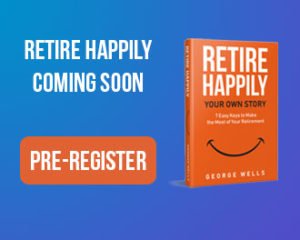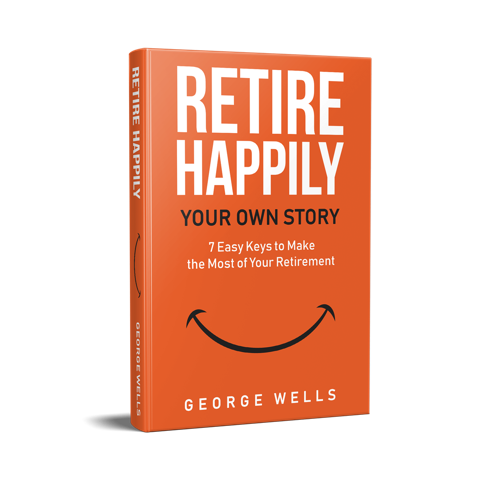If you have any assets at all, you need an estate plan. If you become sick or incapacitated and are unable to work, or if you die, you want your heirs — not the government — to receive your assets, your “stuff.” It is critical that you do your estate planning while you are healthy. Please don’t wait until you are sick. It will be much more difficult at that point.
What Is an Estate? All Your Stuff.
- In the legal context, an “estate” refers simply to everything you own — your stuff. It includes your home, your clothes, the things in your house, your car, your bank account, and your retirement account. Any account or asset you own is your estate.
- When many people think of an estate, they think of a huge mansion on many acres behind a big iron fence. Unfortunately, that image makes the concept of estate planning confusing because even people who do not own mansions have estates.
What Is Estate Planning?
In the legal context, estate planning means planning what will happen to everything you own when you pass away. It is a legal process to take care of people and their property when they can’t do it themselves, either because they’re incapacitated or deceased.
Under the American legal system, when a person reaches the age of 18, no one else can make decisions for him or her. This is so fundamental that we don’t even think about it. If I’m 17 and need to go to the doctor to have surgery, the doctor has to ask my parents for permission to do the surgery, and they have the right to give legal consent. But once I turn 18, no one else can make medical, personal, legal or financial decisions for me. If you’re married, you have to consult with your spouse if something bad happens to you, and that can be a problem in some situations.
An 80-year-old who has dementia and doesn’t know what he owns anymore will no longer be able to pay his bills. If he doesn’t have an estate plan in place, someone can’t just come in and take over his accounts. State laws that govern situations like this can protect vulnerable adults but are not always the best solution to the problem. That’s why it is so important that you take the bull by the horns and put an estate plan in place while you are healthy. Deal with these potential situations now because they can affect you and your family in a significant way.
Who Needs an Estate Plan?
If you do not have an estate plan and you die, the state you live in is going to determine where your stuff will go. Every state has rules in place.
Everyone needs an estate plan, even 18-year-olds because once they turn 18, no one else can make their medical decisions for them. They at least need to appoint someone to be their patient advocate.
Otherwise, if they die, there can be a probate court guardianship. But most 18-year-olds aren’t focusing on estate plans; they’re busy going to college and starting their careers. People are usually most interested in this topic when they have children and as they get older and accumulate accounts and assets.


When Should I Get an Estate Plan?
People tend to think that estate planning involves what happens when they die. Death is certainly a big part of it, but the most important part is what happens if you become sick and then incapacitated and can’t make your own decisions. If you are unable to handle your money or tell the doctor what kind of treatment you want, you need to have a plan in place for who will make those decisions for you.
- If you are married, it’s easy to think that your spouse will make all your decisions for you. Incapacity is a problem, even for married couples. Let’s say a married couple purchased a home back in the 1970s, when they were in their forties, and now it’s 2018.
- They are in their eighties, and the husband has dementia. The wife feels that they need to move to a retirement community or into assisted living. They no longer need the big house they raised their children in. When they bought the house back in the seventies, they put both their names on the deed.
- That means that when it comes time to sell the house, they both need to be able to sign the deed, which is the document that transfers the title of the home to the new buyer. If the husband has dementia and doesn’t know what’s going on, he doesn’t have the legal capacity to sign his name. In some cases, a person physically cannot sign his or her name.
- In that situation, even though it’s a married couple and they own an asset jointly if no estate plan is in place, the wife might have to go to probate court to get the authority to sell their home. That would make a stressful situation even more stressful — and more expensive.
We recommend that you avoid letting that happen. It can be very expensive to go through the court process. Plus, your stuff can end up in the wrong hands. Make it a priority to create your estate plan now, whether you have a giant estate with multiple homes, multiple businesses, and collector cars or if you have a tiny apartment with maybe a cat, some clothes and some old furniture. Everyone needs an estate plan.

In summary, who needs an estate plan?
- Everyone already has an estate plan. If you do not create an estate plan with an attorney, then you will default to your state’s laws regarding the handling of estates.
- Every state has pre-arranged a method of getting your stuff where it belongs if you are not able to make decisions on your own or once you pass away if you haven’t done any advance planning.
Download the Retire Happily Estate Planning Book
‘The Ultimate Guide to Estate Planning‘.
This free educational ebook explains estate planning as simple and complete a possible.






